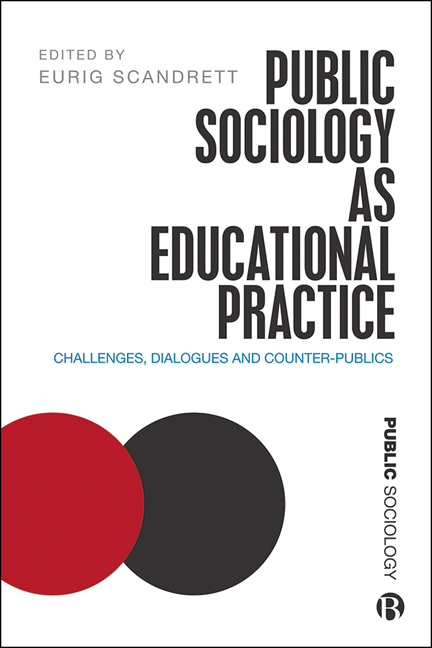II.1 - Crossing the Quadrant: Policy Research and Public Sociology
Published online by Cambridge University Press: 02 March 2021
Summary
Introduction
This chapter explores the relationship between policy research and public sociology. Sociology, as Burawoy (2007a) famously argued, has a responsibility to turn the reflexive knowledge that it produces over to the service of social and political ‘progress’ and has a long tradition of producing ‘really useful knowledge’ to address ‘social problems’. Useful knowledge is subject to dialectical and dialogical processes between diverse publics and sociologists, producing open-ended, morally and politically freighted possibilities that cannot be predetermined. In terms of extra-academic knowledge Burawoy (2007a: 31) distinguishes public sociology from ‘policy sociology’. The latter is characterised as the production of expert knowledge to provide recommendations or legitimate solutions defined by a non-academic client. Policy sociology aims to contribute to the public policy process by attracting research funding either directly from policy-making bodies or from third parties such as charitable foundations or other public agencies. The boundary between public sociology and policy sociology is sometimes more fluid than static ideal-types suppose. For example, policy sociology may assume the form of public sociology in cases where sociologists seek the support of non-policy publics when clients refuse to support policy proposals. Typically, policy sociology seeks to foster constructive relationships with government and policy insiders. Policy sociology is sometimes accused of reducing sociology to a form of technical expertise shaped more by the conditions of funding than the logic of scientific enquiry (Bryson, 1999). Such instrumentalism risks reducing policy sociology to a subordinate relationship to funders in the form of ‘sponsor capture’.
A growing body of literature suggests that the subjective experience of researchers, especially contract researchers, within the processes of policy sociology is often neglected and marginalised by standard accounts of the research process (Bryson, 1999; Hey, 2001; Allen Collinson, 2004; Tilbury, 2007). Contract research is often viewed as a rite of passage, involving what Burawoy (2007a) describes as crossing ‘the quadrants of sociology’. Burawoy's idea of a sociological quadrant refers to a four-fold division of sociological labour – professional, critical, policy, public – and the position that an individual sociologist might occupy at any particular time.
- Type
- Chapter
- Information
- Public Sociology as Educational PracticeChallenges, Dialogues and Counter-Publics, pp. 121 - 134Publisher: Bristol University PressPrint publication year: 2020



